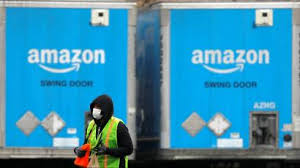
An employee exposed to COVID-19 at work is likely limited to collecting workers’ compensation benefits. COVID-19 exposures are difficult workers’ compensation cases that have been made more difficult by guidance from the United States Department of Labor.
But difficult doesn’t mean impossible. Some COVID-19 exposures could lead to death, serious injury and or extensive medical expenses. Here is how I think workers should pursue workers’ compensation benefits for COVID-19 exposure
What kind of COVID-19 workers compensation claims are worth bringing
Nebraska awards substantial workers’ compensation benefits to the survivors of workers who die due to work-related causes. Severe but not fatal cases of COVID-19 that lead to hospitalization can lead to substantial medical expense. COVID-19 can also have permanently disabling effects. In Nebraska, loss of function from COVID-19 is paid on how the injury impacts a workers’ ability to earn a living.
While a mild case of COVID-19 probably wouldn’t justify bringing a workers’ compensation claim, COVID-19 symptoms may flare up in the future. So regardless of the severity of the COVID-19 exposure, it would make sense for a worker who thinks they got COVID-19 on the job to investigate how they may have gotten the virus.
Playing amateur detective
Most COVID-19 cases will likely be proved by circumstantial evidence. This means that workers should try to rule out non work-related exposure and rule in work-related exposure. This may be challenging because workers who are likely to exposed to COVID-19 on the job are also likely to have friends and family members who have been exposed to COVID-19 who could have exposed them to COVID-19 outside of work.
Workers who have been exposed to COVID-19, or their friends and family, need to do the leg work to gather the facts about possible COVID-19 exposure before memories fade and supporting documentation disappears.
Why you will probably need an attorney to pursue a COVID-19 workers’ compensation case
I believe insurers and employers will deny most COVID-19 workers’ compensation claims for two reasons. One, the cases are hard to prove. Two, many insurance policies apparently have virus exclusions. A lawyer can help a worker, or the family of a worker, exposed to COVID-19 gather facts to support their case.
In Nebraska, lawyers can subpoena documents from employers as well as serve written questions called interrogatories, requests for admissions and requests for production to help prove up a case for COVID-19 exposure on the job. Lawyers can also take depositions. I’ve written before how some employers will likely cover up and under report COVID-19 exposure. But in Nebraska employees should have the ability to obtain absence logs, occupational health records and other information outside of typical injury reports that could circumstantially prove COVID-19 exposure on the job.
I think lawyers pursuing workers’ compensation claim related to COVID-19 in Nebraska need to file petitions and serve discovery as soon as possible. COVID-19 claims will likely require more factual investigation than a typical workers’ compensation case.
Cooperation from co-workers and fear of retaliation
To some extent proving COVID-19 should be covered by workers’ compensation will probably require some cooperation from co-workers. Concerns about retaliation from an employer are legitimate. I’ve also criticized what I think are the weakness of retaliation laws recently. But Nebraska law outlaws retaliating against employees who claim workers compensation benefits. Does that protection extend to co-workers who assist in a workers’ compensation claim? I’m not sure, but recently a federal judge interpreting Nebraska’s workers’ compensation retaliation law held that the law provides broad protections.
Good facts also make good law. What that means is a co-worker who gets fired for helping a co-worker get workers’ compensation benefits may create law that formally extends the protections of workers’ compensation retaliation in Nebraska.
Though mainstream media has not widely reported this news, credible outlets like Payday Report and Law 360 have reported about widespread strikes and employee walkouts over COVID-19 safety related concners. So far, no walk outs have been reported in Nebraska. But supporting a co-worker in a workers’ compensation claim is an act of solidarity like a walk out or strike. The ability for workers to recover workers compensation benefits for COVID-19 exposure may require acts of solidarity.

